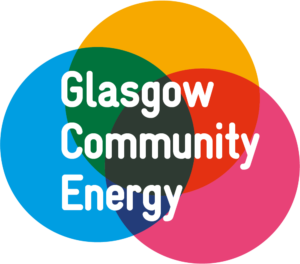With 2020 well under way and everything from Brexit to COP26 on the agenda, we thought our next Glasgow Community Energy blog post should come from one of our newest partners, DMG Environmental Consultancy. A Glasgow-based business committed to helping businesses meet their sustainability goals who we’ll be working with later in the year when our Community Share Offer launches. Take a read as Founder, Daniel shares his top three tips on how businesses can work with community groups.
Supporting community organisations may feel like a drain on your company finances or time, or both. However, there are significant benefits to forming strong, social and holistic partnerships with your businesses’ local community.
1. Become part of the community
Community organisations can make a real difference in the area your business operates. By supporting them you not only build your local business network but also build community loyalty to your business. In the minds of many local people supporting community projects means supporting the community, making them more likely to support you when you need it most.
Having your business recognised as part of the community gives you a lasting legacy in your area and can make you more successful. Gaining recognition and support from the local community can take years for businesses to build up. Partnering with community organisations fast-tracks this process and increases the longevity of your business.

2. Offset emissions and benefit society
Partnering with a community organisation that focuses on renewable energy, rewilding, tree planting or any other climate positive activity generally has a double benefit. Every business can make significant changes that reduce their climate impact. However, many businesses will still produce some emissions from their activities, even after adaptation. This is where offsetting comes in.
Offsetting is a process where a company can invest in a project that reduces emissions (e.g. a community renewables or reforestation organisation), contributing to the fight against climate change. That company can then use this reduction in emissions to counteract (or offset) their own remaining emissions, bringing them closer to net-zero carbon emissions or even making them carbon positive (preventing more carbon from entering the atmosphere than they emit).
This gives the company the double benefit of improving their Corporate Social Identity, showing their commitment to ethical and trust standards, as well as protecting the environment and allowing the company to tap into the growing number of climate-conscious customers.
The community often has a double benefit from this partnership as well. In the case of community renewable energy projects an aspect of urban or community regeneration can be included and the profits from the renewable electricity produced will support further community projects.
3. Stand out from the crowd
Partnering with community organisations can differentiate your business from your competitors. 89% of consumers think businesses should support charities and their local communities and 82% said they would choose a company engaged with its community when deciding on equivalent products or services over one that is not.
Supporting your local community can also improve employee engagement – and engaged staff means a more efficient, profitable business. Many individuals want to volunteer or raise money for charity, but don’t have the time in their busy schedules. Offering your employees the opportunity to do this as part of their work is very fulfilling and can increase engagement, employee retention and workplace happiness.
Want to partner with a community organisation?
Find a project that inspires you and reap all of the personal and business benefits that come with supporting what you believe in. When companies support communities both become better places to live, work and do business.
To find out how to offset your emissions by working with Glasgow Community Energy get in touch and let’s work together to make business and communities come together for good.
Guest blog by Daniel Musenga-Grant
Director, DMG Environmental Consultancy


